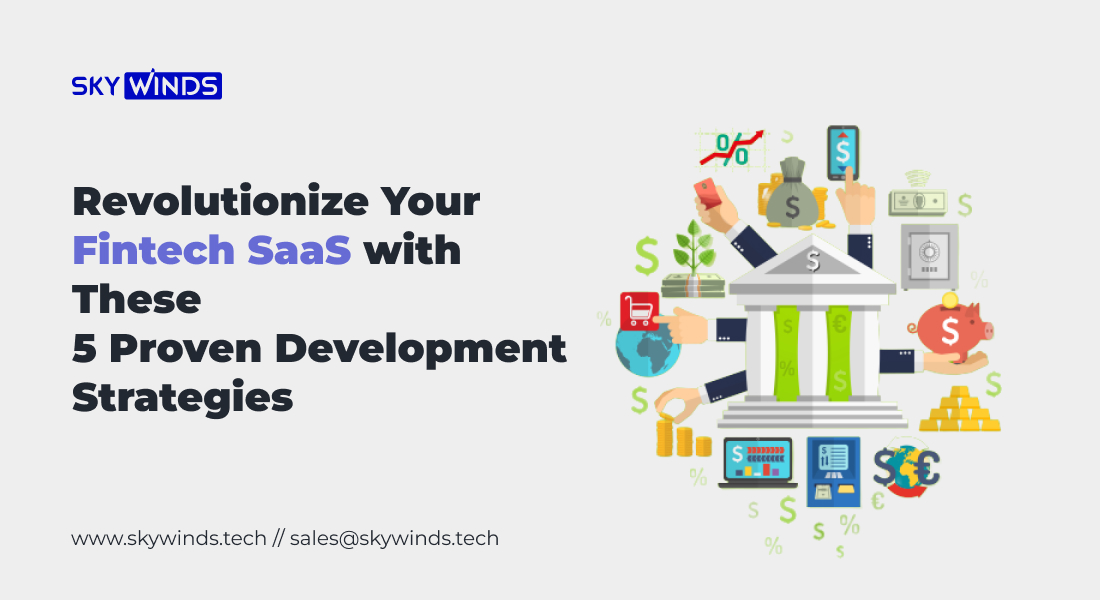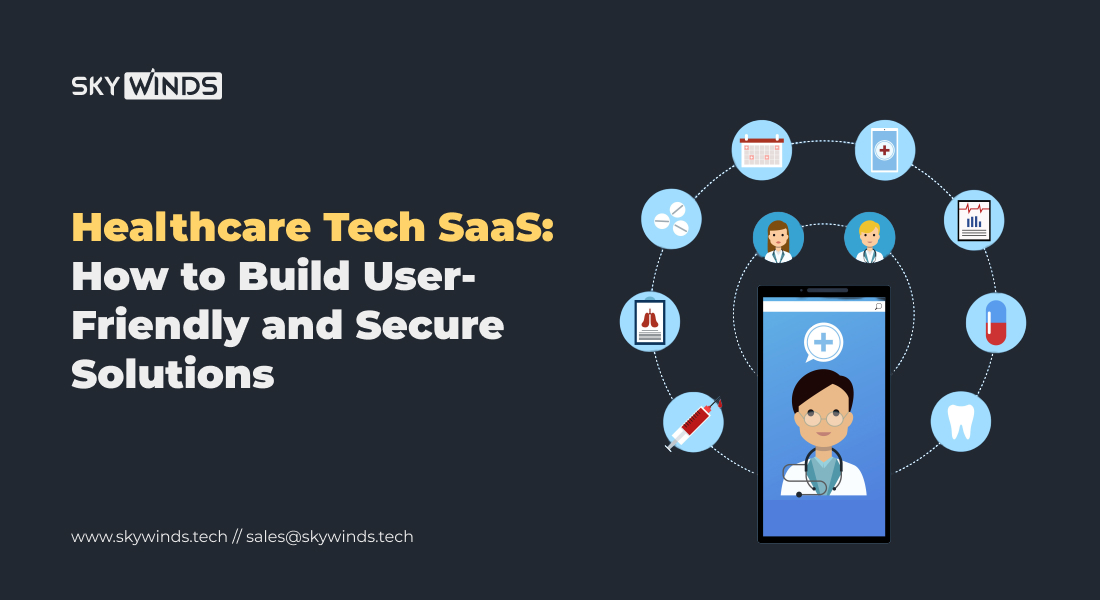Finding the right SaaS development partner in today’s tech-driven world is crucial—especially as digital transformation accelerates across the USA, Canada, Europe, and India. As more organizations turn to cloud-based solutions, making a thoughtful, criteria-oriented choice can make the difference between rapid growth and costly setbacks.
Table of Contents
- Why Choosing the Right SaaS Development Agency Matters
- 1. Proven Industry Experience and Strong Track Record
- 2. Technical Expertise & Modern Tech Stack
- 3. Security, Compliance, and Data Privacy
- 4. Transparent Process & Communication
- 5. Flexibility in Engagement Models and Pricing
- 6. Post-Launch Support & Maintenance
- 7. Cultural Fit and Client Alignment
- At-a-Glance: SaaS Agency Selection Table
- Conclusion: Make Your SaaS Agency Choice a Strategic Advantage
- Frequently Asked Questions (FAQ)
- Q: What’s the safest engagement model for a North American SaaS startup?
- Q: Should I work with an offshore developer?
- Q: Which payment and billing methods are most efficient for Europe or India?
- Q: How do I verify that a SaaS agency is GDPR or HIPAA compliant?
- Q: How long should post-launch support last?
Why Choosing the Right SaaS Development Agency Matters
SaaS adoption is booming worldwide, with the USA and Canada leading technology investments, Europe (including the UK, France, and Italy) doubling down on data privacy and regulation, while India continues to emerge as a global innovation hub. But this opportunity brings risk: a mismatched agency can result in wasted investment, stalled launches, or even regulatory trouble—particularly in markets with strict frameworks like GDPR or HIPAA.
With evolving compliance needs and region-specific integration requirements, decision-makers need a systematic, regionally aware way to choose the right development partner.
1. Proven Industry Experience and Strong Track Record
Your ideal SaaS partner should have extensive experience delivering cloud products to businesses like yours, backed by real-world evidence:
- Diverse Portfolio: Look for agencies with successful SaaS launches for American startups, European SMEs, or multinational enterprises.
- Sector-Specific Experience: Whether you’re in fintech, health, retail, or education, proven sector expertise reduces your project’s risk.
- Client Testimonials & Public Reviews: Investigate case studies and verified reviews across platforms to gauge performance and reliability.
Example: In the US, a fintech startup valued sector leadership and rapid regulatory adaptation; in France, a retail SaaS provider prioritized post-launch relationship and language fluency.
2. Technical Expertise & Modern Tech Stack
Technical know-how is the backbone of SaaS. Leaders in the US, Canada, and Europe require partners fluent in modern frameworks, microservices, and cloud-native deployment.
What to Consider:
- Cloud Platform Expertise: Make sure agencies are adept with AWS, Azure, or Google Cloud—all platforms favored in North America and Europe.
- Regulatory Compatibility: Your partner should support integrations with region-specific services—from EU payment gateways (like Stripe or Mollie) to API and data storage options compliant with Indian law.
- Cutting-Edge Capabilities: Seek proficiency in artificial intelligence, business intelligence, analytics, and continuous deployment workflows.
Tip: Always ask about their experience deploying for mobile-first markets like India or handling localization for France and Italy.
3. Security, Compliance, and Data Privacy
In 2025, data breaches and non-compliance can cripple a business. Your development partner must make security and compliance non-negotiable:
- Global and Local Laws: Demand knowledge of GDPR (Europe), CCPA (California), and region-specific policies (such as India’s data protection rules).
- Standard Practices: Confirm usage of end-to-end encryption, strong authentication, regular security audits, and compliance documentation.
- Cross-border Expertise: Handling multi-country data—especially for European operations—requires rigorous process and legal fluency.
Example: An agency serving both EU and US clients ensures separate infrastructures when needed, and full GDPR and HIPAA compliance during build and launch.
4. Transparent Process & Communication
Seamless SaaS projects require transparency and open channels across time zones:
- Methodological Clarity: Agile, DevOps, or Lean approaches provide flexibility, predictability, and better engagement for stakeholders from New York to London to Mumbai.
- Clear Milestones & Reporting: Regular updates, accessible roadmaps, and a named point of contact should be standard.
- Communication Across Cultures: Look for agencies that can bridge language, culture, and schedule differences—proven with international references.
Advice: Agencies with dedicated account managers or regionally aware teams minimize friction for cross-continental projects (e.g., 24×7 support for North America, French or Italian language support in Europe).
5. Flexibility in Engagement Models and Pricing
No two projects or clients are identical—your agency should offer contract and billing formats suited to your country and scale:
- Contract Variety: Choose from fixed price (for well-defined scopes), time-and-materials (for agile projects), or value-based (for outcome-driven partnerships).
- Billing in Native Currencies: USD for the US/Canada, EUR for Europe, INR for India, with options to handle local tax regulations.
- Adaptability: Ensure they can scale teams up or down or shift methodologies as projects or regulations change.
Example: A European edtech seeks a value-based model with GDPR-compliant payment structures; a US healthcare startup prefers time-and-materials for iterative compliance integrations.
6. Post-Launch Support & Maintenance
SaaS success doesn’t end at launch. Ongoing support is vital for business continuity and responsiveness to user feedback:
- Extended Warranty: Premier agencies offer several months of free support—including bug fixes, user onboarding help, and emergency updates.
- Proactive Maintenance: Expect periodic upgrades, new feature rollouts, and performance monitoring.
- Market-Specific SLAs: 24×7 support coverage for US and India; privacy-first response protocols for European clients.
Key Consideration: Confirm the scope of support (hours, coverage, channels) and any included promotional services (such as initial social media campaigns or user engagement programs).
7. Cultural Fit and Client Alignment
Beyond technical and contractual alignment, long-term SaaS success depends on cultural synergy:
- Alignment with Your Values & Workflow: Whether you value innovation speed (USA), regulatory caution (France), or collaborative transparency (India/UK), choose a partner who “gets” your work style.
- Empathy & Problem Solving: The best agencies proactively identify bottlenecks and communicate solutions—not just updates.
- International Collaboration: Cultural fluency (understanding of holiday calendars, local working hours, and even language nuances) can accelerate delivery and reduce stress.
Scenario: A UK medtech with a strict data privacy culture thrives with a developer who attends to both HIPAA compliance and patient-facing UX best practices.
At-a-Glance: SaaS Agency Selection Table
| Criteria | What to Look For | Red Flags |
| Industry Experience | Broad portfolio & testimonials | Generic, unverifiable claims |
| Technical Skills | Modern cloud, security, BI | Unsupported legacy tech |
| Security & Compliance | GDPR/CCPA/Local ready | Skips data privacy details |
| Transparent Process | Agile, updates, single contact | Delayed/no communication |
| Flexible Pricing | Multiple contract/billing options | Rigid, single-model pricing |
| Post-Launch Support | 3-6mo. support, clear SLAs | Limited/no warranty |
| Cultural Fit | Region-aware, collaborative | Language/culture misfits |
Conclusion: Make Your SaaS Agency Choice a Strategic Advantage
Selecting a SaaS development agency in 2025 demands careful attention to experience, technical skills, security practices, transparent communication, contractual flexibility, ongoing support, and cultural fit. Avoiding shortcuts in the agency selection process is a competitive advantage; instead, use these seven essential criteria to build lasting digital products that succeed in your specific market.
In summary: Skywinds Solutions aligns with every key selection criterion detailed above, combining technical excellence with a client-centered approach. The company’s proven track record, flexible support, compliance expertise, and international experience make it an excellent partner for SaaS businesses aiming for growth, security, and innovation in 2025.
\Ready for your SaaS journey?
Explore our full offering or schedule a free consultation and see how Skywinds Solutions can help you launch, scale, and sustain a world-class SaaS product.
Frequently Asked Questions (FAQ)
Q: What’s the safest engagement model for a North American SaaS startup?
Startups often choose time-and-materials for flexibility, then shift to fixed or value-based contracts as scope becomes clear.
Q: Should I work with an offshore developer?
Offshore agencies can be highly effective—provided they’re reputable, transparent, and experienced in cross-cultural delivery. Check global client references.
Q: Which payment and billing methods are most efficient for Europe or India?
Look for EUR billing in Europe and INR in India. Clarify tax handling, invoicing practices, and available payment processors during negotiations.
Q: How do I verify that a SaaS agency is GDPR or HIPAA compliant?
Check their process documentation, past projects in regulated sectors, and direct references. Request sample audits or reports.
Q: How long should post-launch support last?
A minimum of 3–6 months is ideal for addressing bugs, onboarding users, and responding to user feedback before full handoff.



